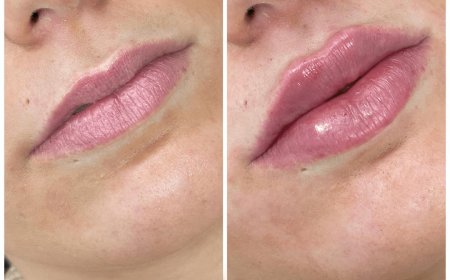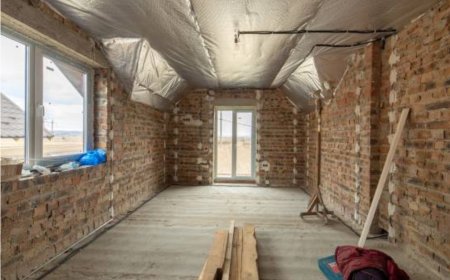Is the American Dream Still Alive? Wealth Inequality in 2025
The American Dreaman ideal where anyone, regardless of background, can achieve prosperity and success through hard workhas been a defining aspect of American culture for centuries. But as we move further into 2025, the question arises: Is the American Dream still alive? Wealth inequality is a major factor at play here, and it seems to be growing by the year. Lets take a closer look at whats happening, why it matters, and how its affecting people like you and me.
The Shift in the American Dream
The notion that anyone can rise from humble beginnings to become successful, rich, or influential has always been deeply ingrained in American values. For many, this dream represented a life where hard work paid off and anyone had the opportunity to succeed.
But recently, this dream seems more elusive than ever. The growing wealth inequality, the widening gap between the rich and the poor, and the increasing difficulty of climbing the economic ladder have raised questions about whether this dream is still achievable. In 2025, its not just about working hard anymore; its about having the right connections, the right opportunities, and sometimes just plain luck.
Wealth Inequality in 2025: The Numbers Don't Lie
Statistics reveal a staggering reality. The wealth gap in America has reached alarming levels, and the divide is only getting wider.
Heres what the numbers show:
-
The top 1% of Americans now own nearly 40% of the nations wealth.
-
The average wealth of a family in the top 1% is approximately 70 times greater than that of the median American family.
-
The middle class has been shrinking over the years, and fewer families are able to achieve upward mobility.
This data highlights a disturbing trend: the rich continue to get richer, while the middle and lower classes struggle to keep up. This trend is contributing to a sense of hopelessness for many who once believed in the American Dream.
Why Is This Happening?
Several factors have contributed to the rise in wealth inequality. Some of these are structural, while others are the result of policies that have disproportionately benefited the wealthy.
Here are a few key reasons:
-
Wage Stagnation: While the cost of living continues to rise, wages for most workers have remained stagnant. This makes it harder for individuals to save, invest, and build wealth.
-
Access to Education and Healthcare: Quality education and healthcare are no longer accessible to everyone. Those who can afford it have a significant advantage when it comes to gaining employment opportunities or living a healthy life.
-
Tax Policies: Tax policies in the U.S. have shifted in ways that favor the wealthy, with tax cuts for the richest Americans and corporations. This has left fewer resources for social programs that could help reduce wealth inequality.
This situation has made the American Dream feel increasingly like a myth, with fewer people able to access the opportunities that once defined it.
How Wealth Inequality Affects You and Me
Wealth inequality impacts everyone, not just the rich or the poor. It influences job opportunities, education, healthcare, and even our mental well-being. But it also has subtle effects that you might not always think about.
Take vaping, for example. Many people turn to vaping as an alternative to smoking, and products like vape juice are often marketed as a healthier option. However, with the rising cost of living and a lack of economic opportunities, its becoming more difficult for many to afford these products.
Vaping products, like nicotine salt e-liquids, have become more expensive over time, making it harder for some people to continue their habit. And thats not the only way wealth inequality affects consumers. When a larger portion of the population struggles with finances, they may not be able to indulge in leisure activities, health trends, or even simple luxuries like vaping.
The Psychological Toll of Wealth Inequality
Wealth inequality doesnt just affect people financiallyit has deep psychological implications as well. The stress of living paycheck to paycheck, the anxiety of not being able to provide for ones family, and the shame of falling short of expectations all contribute to a widespread sense of dissatisfaction.
Moreover, this psychological strain can have broader effects on society. The lack of social mobility can lead to feelings of alienation, resentment, and frustration. In a world where everyone is told that they can "make it," but not everyone is given the tools to succeed, it's no wonder so many feel disconnected from the dream.
Is There Hope for the American Dream?
The question remains: Is the American Dream still achievable in 2025? The answer is not as simple as it once was. For some, its still a possibility, especially if they have access to resources and opportunities. But for the majority, the dream is starting to look like a distant memory.
However, its not all doom and gloom. There are steps we can take to make the American Dream a reality once again for more people:
Heres what needs to change:
-
Fairer Income Distribution: The wage gap between the rich and poor needs to be addressed. People who work full-time should be able to afford basic necessities without relying on government assistance.
-
Improved Access to Education: Education is the key to economic mobility, and it must be accessible to everyone, regardless of their background or financial status.
-
Healthcare Reform: Healthcare should be a basic right, not a luxury. Without access to affordable healthcare, many Americans are unable to achieve their potential.
While wealth inequality remains a significant barrier to achieving the American Dream, these changes could provide a foundation for a fairer, more equitable society where success is accessible to all.
Conclusion: What Can We Do?
Wealth inequality is a major issue, and its up to all of us to push for change. Whether it's through supporting policies that promote fair wages, fighting for more accessible education and healthcare, or simply making conscious choices to support businesses and initiatives that promote social good, we all have a role to play.
The American Dream isnt dead, but it does need a major overhaul. Its time to work together to create a society where everyone has the chance to succeed, no matter their background or financial situation.
In the meantime, while we're waiting for these changes, we can still find small joys in life. Whether its enjoying a fresh vape juice flavor or relaxing with a nicotine salt vape after a long day, sometimes its the little things that keep us going. But lets not forget that true happiness comes from more than just personal indulgenceit comes from collective prosperity and equality for all.



































